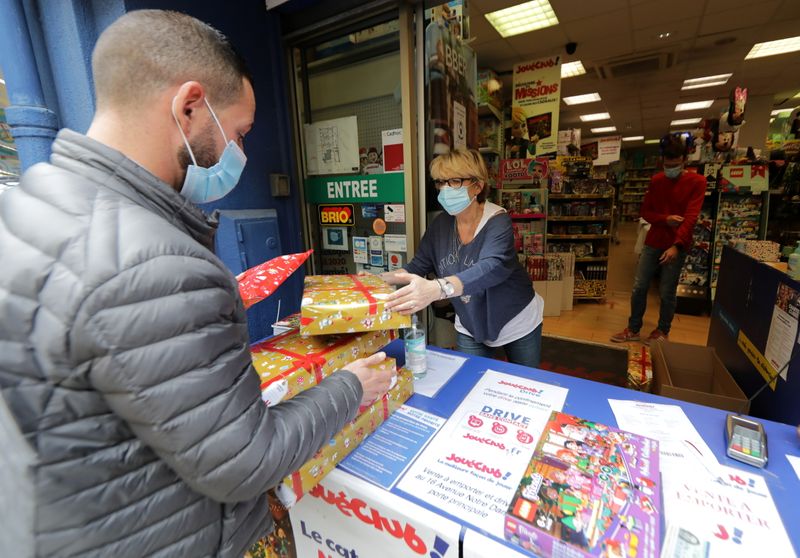PARIS (Reuters) -French consumers were only marginally less confident about their economic prospects in August despite a surge in coronavirus cases and new rules requiring a health pass to enter many retail outlets, a monthly survey showed on Friday.
The INSEE official statistics agency said its monthly consumer confidence index fell to 99 from 100 in July, just short of the average expectation for 100 in a Reuters poll of 10 economists.
The index had peaked at 102 in June – the highest since the pandemic started – as vaccination rates picked up and coronavirus restrictions were eased.
But with France now facing its fourth coronavirus wave as the Delta variant spreads, the government began requiring people earlier this month to show proof of vaccination to enter cafes, restaurants, trains and big shopping malls.
Nonetheless, the survey found that the proportion of households considering that it is a good time to make large purchases remained stable in August above the long-term average while saving intentions rose for the first time in three months.
Concerns about unemployment were also unchanged from July with ‘help wanted’ signs increasingly popping up as companies face growing trouble finding staff.
The share of households expecting prices to rise in the coming months rose slightly as strained supply chains increasingly leave firms little choice but to raise their prices.
The relatively small decline in consumer confidence suggests that at least for now the new health pass is having a limited impact on economic activity even though it has fuelled regular weekend protests across the country.
After a stronger than expected first half of the year, French central bank governor Francois Villeroy de Galhau said on Thursday the bank could raise its 2021 growth forecast of 5.75% when it updates its estimates next month, adding that economic impact from the Delta variant was expected to be limited.
(Reporting by Leigh ThomasEditing by Nick Tattersall and Toby Chopra)





















